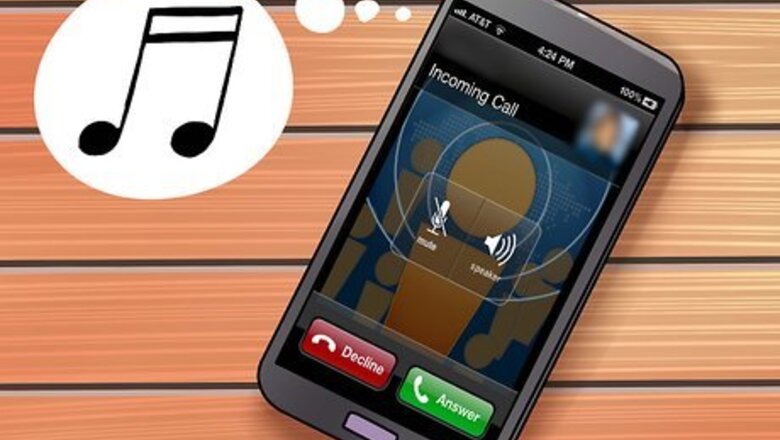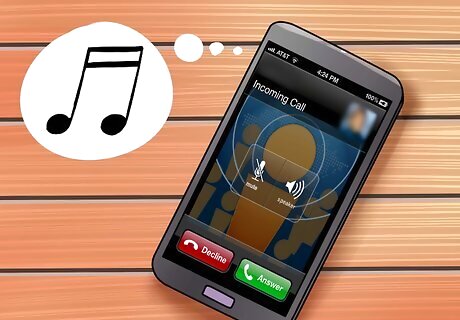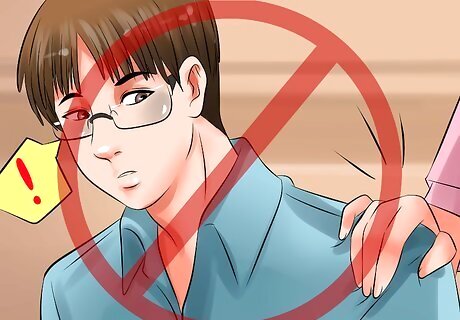
views
Pushing Your Partner Away

Avoid or ignore them. Don’t pick up their calls or answer their texts, and ignore them if they ask to spend time with you. This sort of physically distancing from your partner will likely indicate to them that something is wrong in the relationship. Keep in mind this will likely also cause more drama and anger from your partner, which may then lead to angry voicemails and “surprise” visits that could get ugly.

Blame them for the problems in the relationship. This is one way you can deflect blame from your actions to the actions of your partner, and hurt them enough that they will consider ending the relationship. Keep in mind this method can lead to a permanent break between you and your partner, and will likely put you in a bad light in their eyes.

Cheat on them or make them jealous by flirting with other people. This is another avoidance tactic that will likely hurt and upset your partner so much, they may end your relationship. Be aware that flirting and/or cheating will involve individuals outside your relationship and could make the situation even more complicated and stressful as you are now dealing with the feelings of two “partners” rather than just one. This is also a very destructive and drastic way to get someone to break up with you.
Having the Break Up Conversation

Think about the benefits of discussing your desire to break up with your partner. Though it may be tempting to dodge your partner or act out and hurt them on purpose, having a mature discussion about how you feel will likely end in less hurt feelings and a more civil break up. Rather than play the avoidance game, recognize that your partner deserves to know how you’re feeling and that you are unhappy in the relationship.

Sit your partner down and discuss your feelings in person. The healthiest way to get someone to break up with you is to discuss your unhappiness in the relationship with them in person, face to face. This will ensure you can part in a mature, respectful way that will not cause unnecessary pain to either of you.

Be honest and straightforward, but also sensitive to their feelings. Be prepared for your partner to argue with you and claim they can change or that you are wrong about the relationship. Try to put yourself in their position and sympathize if they express hurt feelings or anger. Remain calm and return to a phrase you feel comfortable with, such as: “This relationship isn’t working for me”, or “I no longer want to be in this relationship.” Avoid phrases that can seem like generic excuses, such as: “It’s not you, it’s me,” or “We just weren’t meant to be together.”

Be specific about why you want to break up. Explain why you don’t want things between you to continue and focus on how you feel rather than listing your partner’s faults or issues. Keep in mind this may open you up to criticism or anger from your partner, so be prepared and try to remain calm.

Be sensitive but firm about your decision to break up. Regardless of any tears or raw emotion that come up during the conversation, it’s important to stick to your decision and commit to the break up. It is also important to give your partner space and time to accept the breakup so cut off communication with them and create distance between you. A ‘clean break’ is usually the best way to end a relationship.

Seek help if the relationship was/is abusive or violent. If you are trying to get an abusive or violent spouse to break up with you, it is not as simple as sitting them down for a one on one conversation. Telling your partner you plan to leave may be dangerous and greatly increase the risk of violence to you and/or others. You will need time to plan your exit, possibly with the help of a trusted friend or family member. There are several free domestic violence helplines you can call to get advice on your options for leaving your spouse and getting out safely.
Making the Break Up Permanent

Avoid getting physical with the person after the break up. This will likely only lead to confused feelings and emotions on both sides, and will erode any finality the breakup may have had. Accept that the relationship has ended. Be selective about the people who surround you during the process of healing. Choose family members and friends you can trust. Create a new routine. It will make your life organized and stable.

Wait a sufficient period of time before spending time with the person. Some people may prefer to completely cut themselves off from their partner to recover from a break up, but over time, you might find you are comfortable enough to reconnect with your former partner. Only do this once a significant period of time has passed and you feel you have moved on from the relationship, even if you were the one who did the breaking up. Reader Poll: We asked 528 wikiHow readers who've broken up with their partner, and only 5% of them agreed that you should suggest staying friends. [Take Poll] This can lead to blurred lines and confusion about the relationship, so only reach out to your former partner if you know you’ve both moved on.

Seek legal assistance if the person exhibits stalking behavior or harassment. The violence you experienced with your partner could continue after you have broken up or take the form of stalking or harassment. Avoid communicating with the person and state clearly only once via email or text that you want no further contact with them and any you have will be regarded as harassment. Keep a record of any unwanted contact, but do not reply. Call the police if there is repeated contact or direct threats.


















Comments
0 comment